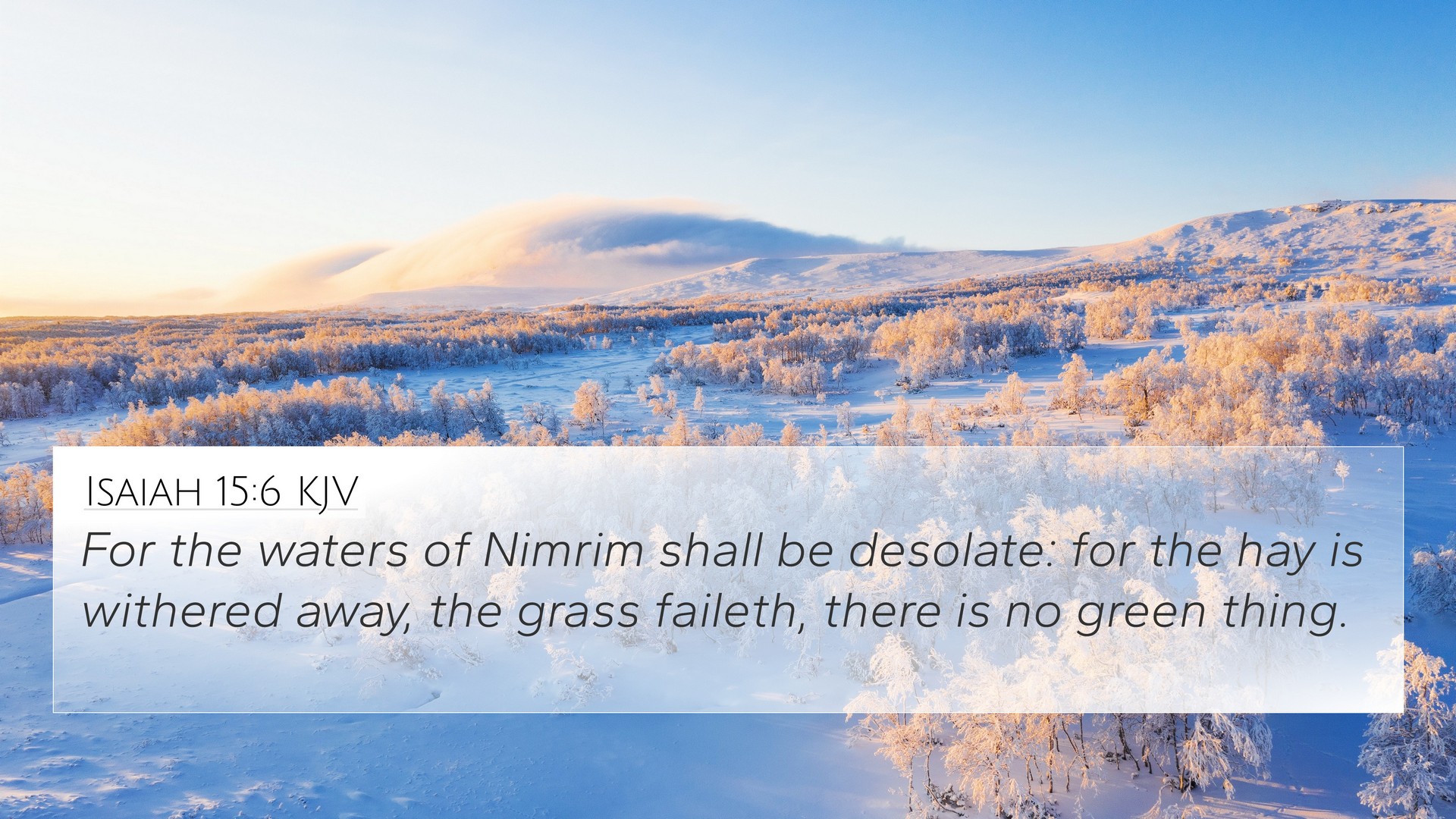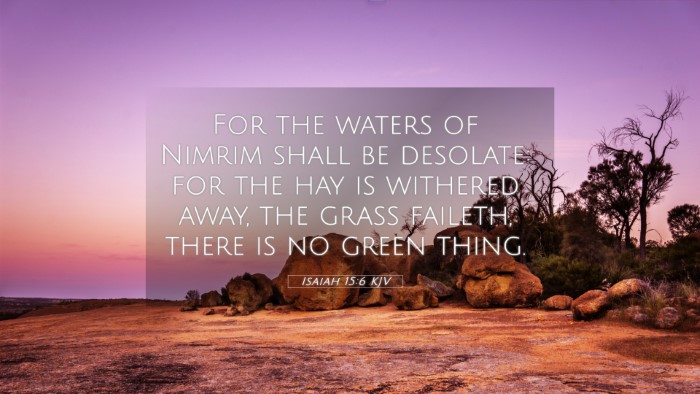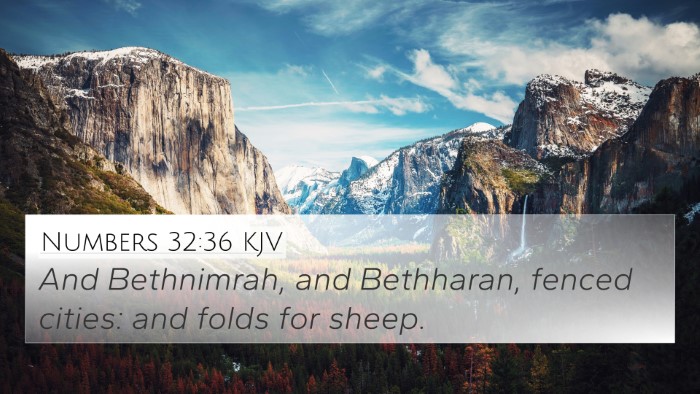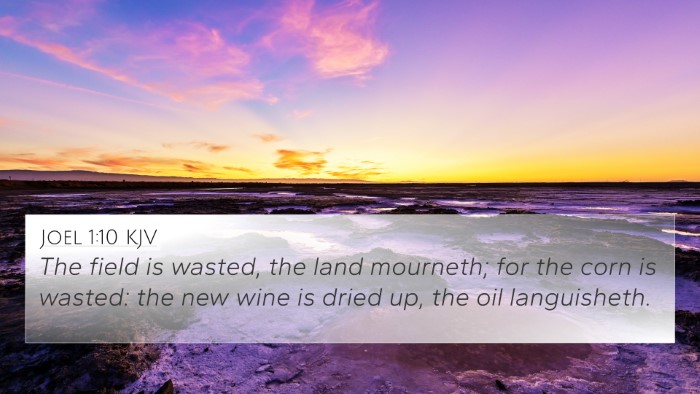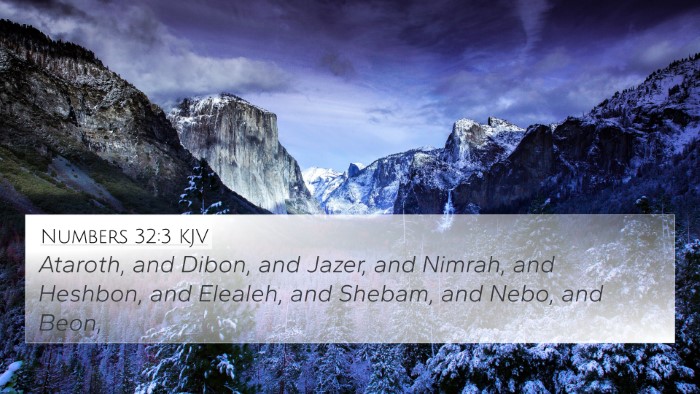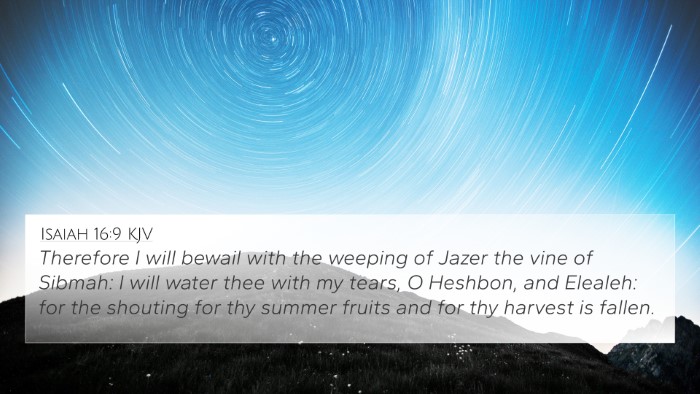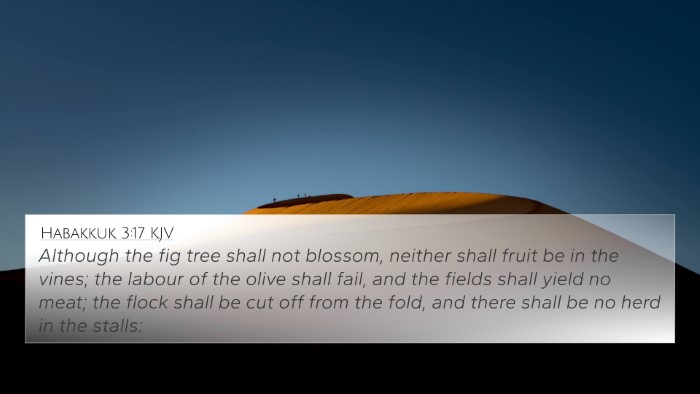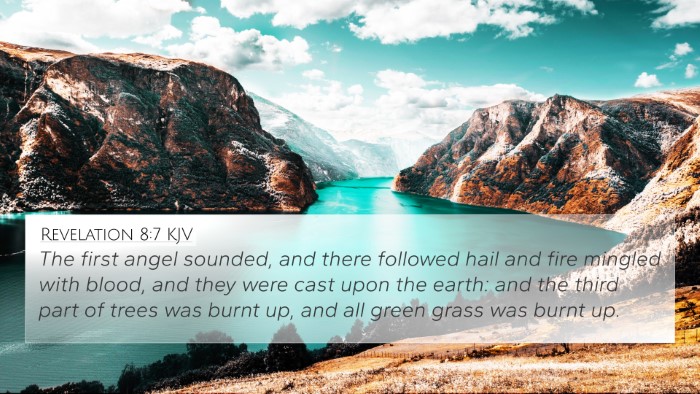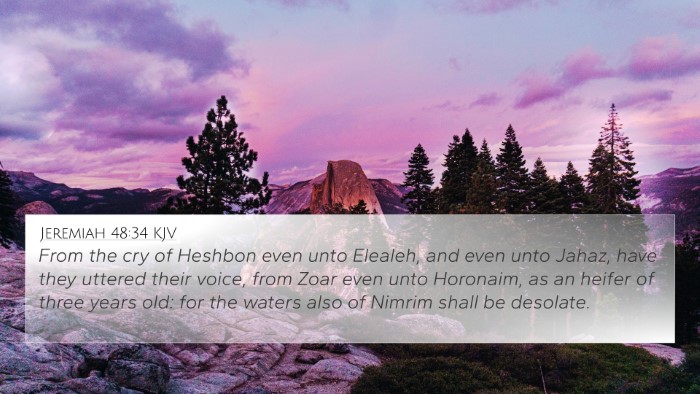Understanding Isaiah 15:6
Isaiah 15:6 states, "For the waters of Nimrim shall be desolate; for the grass is withered away, the herb is gone, and there is no green thing."
Summary of Context and Meaning
The verse reflects the dire situation faced by Moab, a kingdom that would suffer devastation. This desolation is depicted through imagery of withered grass and desolate waters, indicating a significant decline not only in their physical environment but also in their spiritual condition. The pronouncement serves as a warning and reflection of impending judgment.
Insights from Public Domain Commentaries
-
Matthew Henry:
Henry highlights the urgency and seriousness of the message, interpreting the waters of Nimrim as metaphors for both joy and sustenance now rendered barren. The judgment against Moab emphasizes the fragility of human pride and reliance on earthly resources.
-
Albert Barnes:
Barnes elaborates on the geographical significance of Nimrim, pointing out its connection to prosperity. He stresses that the desolation represents not only geographical ruin but also a moral and spiritual decline, consistent with God's justice.
-
Adam Clarke:
Clarke adds a historical perspective, suggesting that the verse serves as an ominous reminder of the consequences faced by nations that reject God. The imagery of no green thing signifies a complete collapse of hope and sustenance.
Bible Verse Cross-References
This verse is interconnected with several other scriptures, showcasing thematic connections throughout the Bible. Here are some relevant cross-references:
- Jeremiah 48:1-6: Details God's judgment upon Moab.
- Isaiah 16:9: Further commentary on Moab's plight and desolation.
- Psalms 37:2: Illustrates the transient nature of the wicked.
- Isaiah 24:4: Discusses the mourning of the earth, linking nature's state with divine judgment.
- Isaiah 35:7: A promise of restoration that contrasts the desolation described in 15:6.
- Nahum 1:4: God's power over nature as a reflection of His justice.
- Ezekiel 30:12: A further illustration of divine judgment affecting the land.
Exploring Thematic Connections
The theme of desolation resonates across both the Old and New Testaments, indicating God's judgment on nations that turn away from Him. Each of the references above offers dimensions to understanding God's overarching plan for both punishment and restoration. The verse invites readers to explore deeper narrative parallels and sharp contrasts between judgment and grace.
Tools for Bible Cross-Referencing
For those interested in exploring cross-references, several resources can enhance study:
- Bible Concordance: A tool that lists key terms and associated verses.
- Bible Cross-Reference Guide: Offers organized connections between verses.
- Comprehensive Bible Cross-Reference Materials: Detailed studies across themes and books.
- Bible Reference Resources: Tools for sermon preparation and thematic exploration.
Effective Bible Study Methods
Engaging with the text deeply requires recognizing inter-Biblical dialogue. Consider methods such as:
- Identifying connections between Old and New Testament: Seek ways these texts inform and clarify each other.
- Comparative study of Pauline epistles: Insights into themes of judgment and grace.
- Cross-referencing Psalms with New Testament teachings: Finding continuity in the message of hope amidst despair.
Conclusion
Isaiah 15:6 is a poignant reminder of the fragility found outside of God's protection. By engaging with the broader narrative through scriptural cross-referencing, one can appreciate the depth and richness of God's Word.
Understanding the connections between Bible verses not only enriches one's faith journey but also encourages deeper reflection on personal and communal repercussions of turning away from divine guidance.
